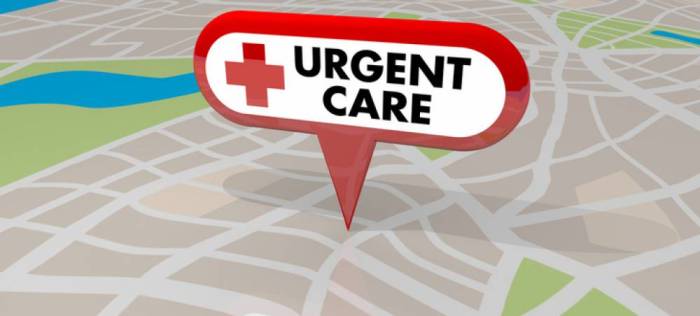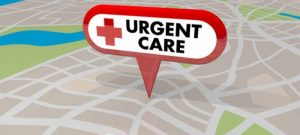
Imagine yourself on a dream vacation, exploring a vibrant foreign city, when suddenly, an unexpected emergency arises. What do you do? Navigating travel emergencies abroad can be daunting, but with the right preparation and knowledge, you can confidently handle any unforeseen circumstances.
This guide will equip you with the essential tools and strategies to navigate travel emergencies abroad, from understanding common risks and pre-trip planning to effectively responding to emergencies and ensuring your safety and well-being.
Responding to Emergencies

Staying calm and composed is crucial in an emergency situation. Panic can cloud judgment and hinder your ability to make rational decisions. Take a deep breath and assess the situation. Determine the nature of the emergency, the potential risks involved, and the resources available to you.
Communicating with Local Authorities and Medical Personnel
Clear and effective communication is vital during an emergency. When contacting local authorities or medical personnel, speak slowly and clearly. Use simple language and avoid jargon. If you’re unsure about something, don’t hesitate to ask for clarification. Be prepared to provide essential information, such as your name, location, and the nature of the emergency.
Navigating Language Barriers and Cultural Differences
Language barriers can pose significant challenges in emergency situations. Consider carrying a translation app or phrasebook. Look for signs or symbols that can help you navigate unfamiliar environments. Be mindful of cultural differences in communication styles and etiquette. For example, in some cultures, direct eye contact may be considered disrespectful, while in others, it’s expected.
Securing Medical Assistance and Transportation
In case of a medical emergency, seek medical attention immediately. Contact your travel insurance provider or embassy for guidance. If you need transportation, inquire about local ambulance services or taxi companies. Be prepared to provide details about your location, medical condition, and insurance information.
Travel Safety and Prevention
Traveling abroad can be an incredible experience, but it’s important to prioritize your safety and well-being. Understanding local laws and customs, practicing safe travel habits, and being aware of common scams can significantly reduce the risk of encountering unexpected situations.
Staying Safe in Unfamiliar Environments
Being in a foreign country can be exciting, but it’s also crucial to stay vigilant. Familiarize yourself with the local laws and customs before you travel. Understanding local norms can help you avoid potential misunderstandings or conflicts. For example, certain gestures or behaviors that are acceptable in your home country may be considered offensive in another.
- Dress appropriately: Research the local dress code and pack accordingly. Avoid wearing flashy jewelry or expensive clothing that could attract unwanted attention.
- Be aware of your surroundings: Pay attention to your surroundings and be mindful of people and places that seem out of place or suspicious.
- Avoid walking alone at night: If possible, travel with a companion, especially in unfamiliar areas. If you must walk alone, choose well-lit and populated streets.
- Use reliable transportation: Opt for reputable taxis or public transportation options. Avoid using unofficial or unlicensed transportation services.
Travel Insurance

Travel insurance is an essential part of any international trip, providing financial protection against unexpected events that could disrupt your plans and potentially lead to significant expenses. It acts as a safety net, offering peace of mind knowing you have support in case of emergencies or unforeseen circumstances.
Types of Travel Insurance Plans
Different travel insurance plans cater to various needs and budgets. Here’s a breakdown of common types:
- Basic Travel Insurance: This provides fundamental coverage, including trip cancellation, interruption, and medical expenses. It’s ideal for short trips and those seeking basic protection.
- Comprehensive Travel Insurance: This offers more extensive coverage, encompassing medical emergencies, evacuation, lost luggage, and travel delays. It’s suitable for longer trips or those with specific needs, like adventure activities.
- Luxury Travel Insurance: Tailored for high-end travelers, this plan includes premium features like concierge services, medical evacuation by private jet, and high coverage limits for medical expenses.
- Adventure Travel Insurance: Designed for travelers participating in extreme activities like skiing, scuba diving, or trekking, this plan covers risks associated with these pursuits.
- Student Travel Insurance: This plan caters to students traveling abroad for education or exchange programs, providing coverage for specific needs, such as medical expenses and academic disruption.
Importance of Specific Coverage for Medical Emergencies and Evacuation
Medical emergencies and evacuation are critical aspects of travel insurance, especially when traveling abroad. Here’s why:
- High Medical Costs: Medical expenses in many countries can be significantly higher than in your home country. Travel insurance helps cover these costs, preventing financial strain during a crisis.
- Medical Evacuation: If you require emergency medical care that’s not available locally, travel insurance can cover the cost of medical evacuation back to your home country or to a facility with the necessary expertise.
- Repatriation of Remains: In the unfortunate event of a traveler’s death abroad, travel insurance can assist with the repatriation of remains back to their home country.
Filing a Claim with Your Travel Insurance Provider
In case of an emergency, promptly contact your travel insurance provider to initiate a claim. Here’s what you’ll typically need:
- Policy Details: Your insurance policy number and contact information.
- Proof of Emergency: Medical bills, police reports, or other documentation supporting your claim.
- Travel Itinerary: Flight details, accommodation bookings, and other travel documents.
- Communication: Keep your insurance provider informed about your situation and any changes in your plans.
Comparison of Travel Insurance Providers
| Provider | Coverage | Benefits | Cost |
|---|---|---|---|
| World Nomads | Comprehensive | Adventure activities, 24/7 assistance | $$ |
| SafetyWing | Digital Nomad-focused | Long-term travel, remote work coverage | $ |
| Allianz Travel | Basic to Comprehensive | Wide range of plans, global coverage | $$$ |
| Travel Guard | Comprehensive | Cancel for any reason, medical evacuation | $$$ |
| IMG Global | Medical-focused | High medical coverage limits, international hospitals | $$$$ |
Case Studies and Examples
Learning from real-life travel emergencies helps us understand the challenges and best practices for managing them. Examining these situations can highlight the importance of preparedness, effective communication, and utilizing available resources.
Emergency Response and Communication
- In 2019, a group of American tourists in Thailand experienced a serious bus accident. The group leader, with the help of a local guide, quickly contacted emergency services and their travel insurance provider. The tourists were transported to a local hospital, where they received immediate medical attention. Their insurance company coordinated with the hospital and facilitated communication with their families back home.
This case demonstrates the crucial role of quick communication, access to medical care, and the value of comprehensive travel insurance in managing an emergency situation.
- A British traveler in Peru was hiking in a remote area when he fell and sustained a serious leg injury. He was alone and had limited phone reception. He managed to send a text message to a friend back home, who alerted local authorities. The authorities launched a search and rescue operation, successfully locating the injured traveler. This example underscores the importance of informing others about your travel plans and having a communication plan in case of an emergency.
Cultural Differences in Emergency Response
- A German tourist in India was involved in a minor car accident. While he was unharmed, he was unfamiliar with local customs and procedures for reporting accidents. He was unsure how to communicate with the local police and felt overwhelmed by the unfamiliar environment. This case highlights the need for travelers to familiarize themselves with local customs and practices regarding emergency response.
Learning basic phrases in the local language and understanding cultural nuances can significantly improve communication and reduce stress during an emergency.
- A Japanese traveler in Spain experienced a medical emergency while on a train. He was unable to effectively communicate his needs to the train staff, leading to a delay in receiving medical attention. This situation emphasizes the importance of having a basic understanding of the local language, especially medical terminology, when traveling to unfamiliar destinations. Travelers can benefit from learning a few key phrases or carrying a medical card with their medical history translated into the local language.
Being prepared for travel emergencies abroad is crucial for a stress-free and enjoyable journey. By understanding the potential risks, implementing preventative measures, and knowing how to respond effectively, you can confidently embrace the adventure of exploring the world while safeguarding your safety and well-being. Remember, staying informed, prepared, and proactive can make all the difference in a challenging situation.
FAQ Explained
What are some common travel emergencies abroad?
Common travel emergencies include health issues, theft, lost or stolen documents, transportation disruptions, and natural disasters.
How can I find a doctor or hospital in a foreign country?
Your travel insurance provider or your embassy/consulate can assist in finding medical facilities. You can also search online for local hospitals or clinics.
What should I do if I lose my passport?
Contact your embassy or consulate immediately to report the loss and begin the process of obtaining a replacement passport.
How can I stay safe while traveling in a foreign country?
Be aware of your surroundings, avoid displaying excessive amounts of cash or valuables, and stay in well-lit and populated areas at night.





